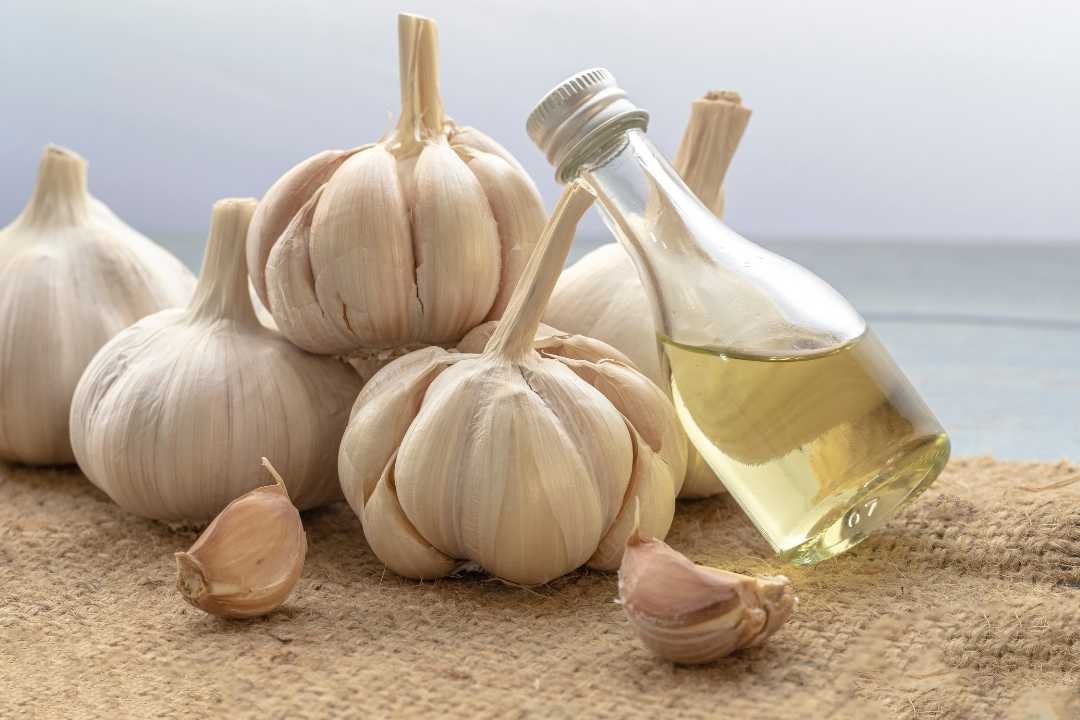A drop of Garlic Oil can create a great balance in body health. Garlic Oil provides holistic benefits throughout the body by showing effects in many areas such as circulatory and digestive system, immune defense, supporting heart health.
Description of Garlic Oil
Garlic is a phytonutrient that has been used for centuries for different purposes and needs. It provides a functional benefit to human health with its sulfur, phenolic compounds, flavonoids, vitamins and minerals. Garlic Oil contains a component called allicin, which increases intestinal health and the diversity of beneficial bacteria in the intestinal microbiota. While serving human health positively with its rich nutrient content, it contains many protective and treatment process accelerating benefits.
Health Effects of Garlic Oil
Garlic Oil can provide many health benefits. In particular, it is known to have positive effects on heart health, anti-inflammatory effects and metabolic syndrome.
Heart Health:
Garlic Oil can improve the function of small vessels and reduce inflammation in the body. Furthermore, garlic oil may reduce the risk of heart disease by lowering triglyceride levels in the blood.
Anti-Inflammatory Effects:
Garlic Oil can inhibit inflammation in the body and prevent intestinal damage. These effects have been achieved by using garlic oil in appropriate quantities.
Metabolic Syndrome:
Garlic Oil can improve symptoms of metabolic syndrome.
Antioxidant and Antibacterial Effects:
Garlic Oil may exhibit antioxidant properties within the cell and may be effective against various bacteria.
In an overall assessment, Garlic Oil may show positive effects on heart health, anti-inflammatory effects and metabolic syndrome. However, to achieve these benefits, it is important to use appropriate doses and formulations with personalized health approaches.
Things to Consider During the Use of Garlic Oil
Among the side effects of Garlic Oil, the most commonly reported are "garlic breath" and body odor. Allergic reactions (allergic contact dermatitis, generalized urticaria, angioedema, pemphigus, anaphylaxis and photoallergy) and altered platelet function and coagulation (bleeding risk) have also been observed.
In high doses, Garlic Oil may cause damage to the intestinal mucosa and increase peripheral proinflammatory cytokine levels. Furthermore, garlic oil may affect hepatic biotransformation enzymes and in some cases lead to liver damage.
Based on this information, the main side effects to be aware of when using Garlic Oil include bad odor, allergic reactions, risk of bleeding and potential liver damage. Since the use of the correct dosage is important for the garlic structure, it is more important to use this supportive product carefully and act with expert advice.
Scientific Statistics on Garlic Oil Supplementation
Scientific studies provide various findings on the effectiveness and side effects of garlic oil supplements:
- Hypertension
Studies have found that garlic oil supplements can reduce systolic blood pressure by 7-16 mmHg and diastolic blood pressure by 5-9 mmHg. - Cholesterol
Sarımsak ekstresi destekleri toplam kolesterolü 7.4-29.8 mg/dL azaltabilir. Ayrıca, düşük yoğunluklu lipoprotein (LDL) kolesterolü %10 oranında düşürebilir. Sarımsak destekleri sarımsak yağında da bulunan allisin etken maddesini içermektedir. - Microvascular Function:
Black Garlic Oil was administered as capsules to participants in one study and was observed to be able to improve microvascular function and reduce components of metabolic syndrome. - Antioxidant Capacity:
It has been observed that garlic supplements can increase levels of an antioxidant enzyme called superoxide dismutase, an indicator that it increases total antioxidant capacity.
Bibliography:
- Bara-Ledesma N, Jimenez-Esteban J, Fabregate M, Fabregate-Fuente R, Cymberknop LJ, Castillo-Martinez P, Navarro-Fayos MT, Gomez Del Olmo V, Saban-Ruiz J. Effect of Encapsulated Purple Garlic Oil on Microvascular Function and the Components of Metabolic Syndrome: A Randomized Placebo-Controlled Study-The ENDOTALLIUM Study. Nutrients. 2024 Jun 3;16(11):1755. doi: 10.3390/nu16111755. PMID: 38892688; PMCID: PMC11175032.
- Bhatwalkar SB, Mondal R, Krishna SBN, Adam JK, Govender P, Anupam R. Antibacterial Properties of Organosulfur Compounds of Garlic (Allium sativum). Front Microbiol. 2021 Jul 27;12:613077. doi: 10.3389/fmicb.2021.613077. PMID: 34394014; PMCID: PMC8362743.
- DeLeon ER, Gao Y, Huang E, Olson KR. Garlic oil polysulfides: H2S- and O2-independent prooxidants in buffer and antioxidants in cells. Am J Physiol Regul Integr Comp Physiol. 2016 Jun 1;310(11):R1212-25. doi: 10.1152/ajpregu.00061.2016. Epub 2016 Apr 13. PMID: 27101293; PMCID: PMC4935497.
- Kuo CH, Lee SH, Chen KM, Lii CK, Liu CT. Effect of garlic oil on neutrophil infiltration in the small intestine of endotoxin-injected rats and its association with levels of soluble and cellular adhesion molecules. J Agric Food Chem. 2011 Jul 27;59(14):7717-25. doi: 10.1021/jf201185v. Epub 2011 Jun 28. PMID: 21688797.
- Zeng T, Guo FF, Zhang CL, Song FY, Zhao XL, Xie KQ. A meta-analysis of randomized, double-blind, placebo-controlled trials for the effects of garlic on serum lipid profiles. J Sci Food Agric. 2012 Jul;92(9):1892-902. doi: 10.1002/jsfa.5557. Epub 2012 Jan 10. PMID: 22234974.

